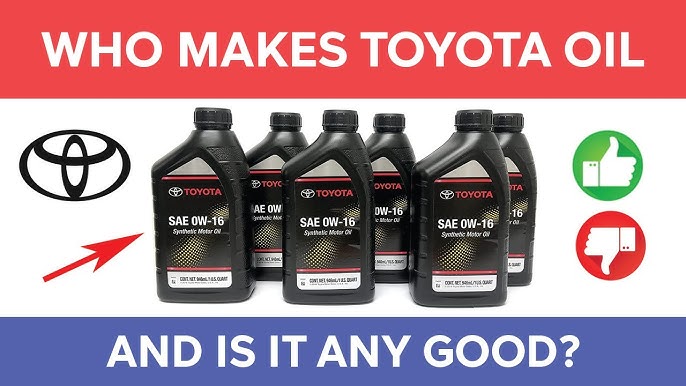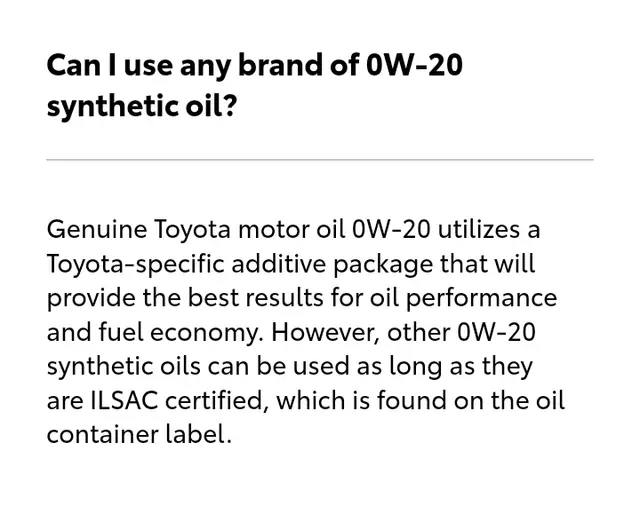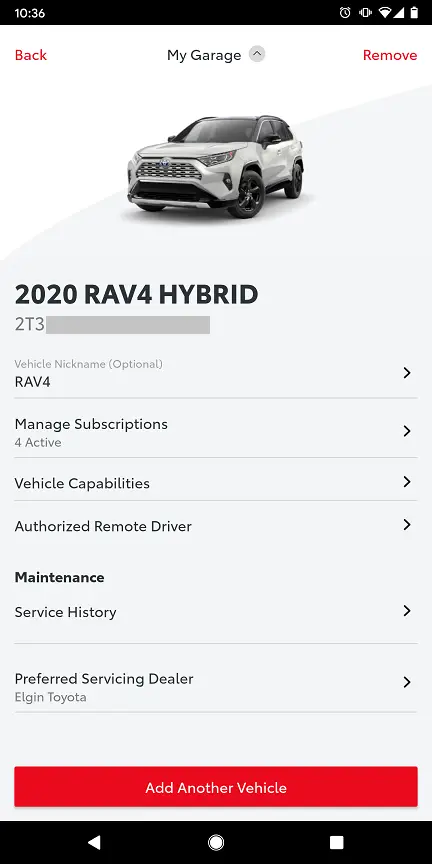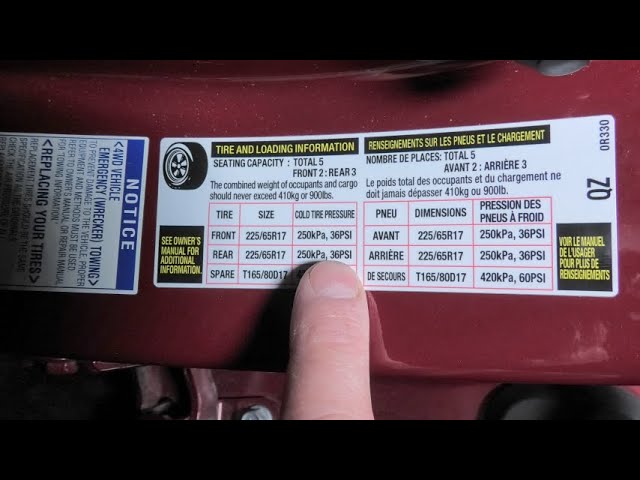Toyota uses its own brand of engine oil called Toyota Genuine Motor Oil. This ensures optimal performance and longevity for Toyota vehicles.
Table of Contents
ToggleChoosing the right engine oil is crucial for maintaining your car’s health. Toyota Genuine Motor Oil is specially formulated to meet the needs of Toyota engines. This oil provides superior protection, reduces wear and tear, and enhances fuel efficiency. Using the correct oil can make a significant difference in your vehicle’s performance.
In this blog post, we will explore why Toyota recommends its own brand of engine oil. We will also discuss the benefits of using Toyota Genuine Motor Oil and how it helps in keeping your engine running smoothly. Let’s dive into the details!

Credit: www.reddit.com
Toyota’s Recommended Engine Oil
Toyota recommends using genuine Toyota Motor Oil for optimal engine performance. This brand ensures the best protection and efficiency for Toyota vehicles.
Choosing the right engine oil for your Toyota is crucial. It ensures the engine runs smoothly and lasts longer. Toyota recommends specific engine oils that meet their high standards. These oils are designed to keep your engine in top condition.Official Brand
Toyota often recommends using their own brand of engine oil, Toyota Genuine Motor Oil. This oil is formulated specifically for Toyota engines. It provides optimal performance and protection. Toyota Genuine Motor Oil is widely available at Toyota dealerships and authorized retailers.Specifications
Toyota specifies certain grades and types of oil. The most common is 0W-20 synthetic oil. This oil is designed for efficiency and protection. It helps improve fuel economy and engine durability. Other recommended grades include 5W-30 and 10W-30, depending on the model and year of your Toyota. Following these recommendations ensures your Toyota engine stays healthy. Always refer to your owner’s manual for the exact specifications. Keeping up with oil changes and using the recommended oil can save you from costly repairs. “`
Credit: www.youtube.com
Genuine Toyota Motor Oil
Genuine Toyota Motor Oil is specifically formulated for Toyota vehicles. It provides superior protection and performance. This oil meets the high standards set by Toyota engineers.
Benefits
Using Genuine Toyota Motor Oil offers several advantages:
- Optimal engine performance: Keeps the engine running smoothly.
- Extended engine life: Reduces wear and tear.
- Enhanced fuel efficiency: Improves gas mileage.
- Protection against sludge: Prevents harmful deposits.
- Warranty compliance: Ensures your vehicle remains within warranty.
Availability
Genuine Toyota Motor Oil is widely available:
- Dealerships: Most Toyota dealerships stock it.
- Auto parts stores: Many major chains carry it.
- Online retailers: Available on websites like Amazon.
Always use the right oil for your Toyota. Genuine Toyota Motor Oil ensures peak performance and longevity. Don’t settle for less.
Synthetic Vs. Conventional Oil
Choosing the right engine oil for your Toyota is crucial. There are two main types: synthetic and conventional. Knowing the differences helps you make a better choice.
Performance Differences
Synthetic oil offers better performance than conventional oil. It flows better at low temperatures. It also resists breakdown at high temperatures. This means your engine gets better protection.
On the other hand, conventional oil is less refined. It has impurities that can cause sludge build-up. This can affect the performance of your engine over time.
Longevity
Synthetic oil lasts longer than conventional oil. You can drive more miles between oil changes. This saves you time and money. Synthetic oil also reduces engine wear, extending the life of your engine.
Conventional oil needs to be changed more often. Frequent changes can be a hassle. Over time, this can also become more expensive.
| Feature | Synthetic Oil | Conventional Oil |
|---|---|---|
| Performance | High | Moderate |
| Longevity | Long | Short |
| Temperature Resistance | Excellent | Poor |
Choosing the right oil type ensures your Toyota runs smoothly. Consider both performance and longevity when making your decision.
Choosing The Right Viscosity
Choosing the right viscosity for your Toyota’s engine oil is crucial. It ensures the engine runs smoothly and efficiently. Viscosity refers to the oil’s thickness and its ability to flow at different temperatures. The correct viscosity maintains proper lubrication, reduces wear, and extends the engine’s life.
Climate Considerations
Climate plays a significant role in selecting the right viscosity. In colder regions, thinner oil is essential. It flows better at low temperatures. For warmer climates, thicker oil maintains its protective qualities. Always check your Toyota’s manual for specific recommendations.
Driving Conditions
Driving conditions also affect the choice of engine oil viscosity. Frequent short trips can lead to engine deposits. Thinner oil may be better in such cases. For heavy towing or high-speed driving, thicker oil provides better protection. Consider your daily driving habits.
Oem Vs. Aftermarket Oil
When choosing engine oil for your Toyota, you face two primary options: OEM (Original Equipment Manufacturer) oil and Aftermarket oil. Both have their pros and cons, which can impact your vehicle’s performance and longevity. This section will explore the differences between OEM and Aftermarket oils, focusing on quality and cost.
Quality Comparison
OEM oil is designed specifically for Toyota engines. It meets the exact specifications required by the manufacturer. This ensures optimal performance and longevity. Aftermarket oils come from various brands and may not adhere to the same strict standards. While some aftermarket oils are high-quality, others may lack the precision needed for Toyota engines.
Consider the following points:
- OEM Oil: Tested and approved by Toyota.
- Aftermarket Oil: Varies in quality, with some not meeting Toyota’s standards.
- Consistency: OEM oil offers consistent performance.
- Variability: Aftermarket oil quality can be inconsistent.
Cost Differences
Cost is another critical factor when choosing between OEM and Aftermarket oil. OEM oil tends to be more expensive due to its specialized formulation and testing. Aftermarket oils are often cheaper, but this lower price can come at the expense of quality.
Here is a quick comparison:
| Type | Average Cost | Quality Assurance |
|---|---|---|
| OEM Oil | Higher | High |
| Aftermarket Oil | Lower | Varies |
While OEM oil is pricier, it offers peace of mind with guaranteed quality. Aftermarket oil may save you money upfront but could cost more in the long run due to potential engine issues.
Oil Change Intervals
Regular oil changes are vital for your Toyota’s engine health. Knowing the right oil change intervals helps maintain peak performance and extends the engine’s life.
Mileage Recommendations
Toyota recommends changing the oil every 5,000 to 10,000 miles. This range depends on the type of oil and driving conditions. Check your owner’s manual for specific guidance.
| Mileage | Oil Type | Driving Conditions |
|---|---|---|
| 5,000 miles | Conventional | Severe |
| 7,500 miles | Synthetic Blend | Normal |
| 10,000 miles | Full Synthetic | Normal |
Signs You Need An Oil Change
Recognizing the signs of needed oil change ensures your engine runs smoothly. Here are some common indicators:
- Check Engine Light: Often the first warning signal.
- Dirty Oil: Fresh oil is amber, dirty oil is dark.
- Engine Noise: Increased noise may mean old or low oil.
- Exhaust Smoke: Blue smoke can indicate an oil issue.
- Oil Level: Regularly check the dipstick for low levels.
Timely oil changes keep your Toyota running efficiently. Follow the recommended intervals and watch for signs to ensure optimal performance.
Diy Oil Change Tips
Changing your Toyota’s engine oil yourself can save you money. It’s also a satisfying task for car enthusiasts. But it requires the right tools and a clear step-by-step guide. This section will cover the essential tools and steps you need for a successful DIY oil change.
Tools Required
- Oil filter wrench
- Drain pan
- Funnel
- Socket wrench set
- New oil filter
- New engine oil (check your Toyota’s manual for the right type)
- Gloves
- Rags or paper towels
Step-by-step Guide
- Start your engine and let it run for a few minutes. Warm oil flows better and drains faster.
- Turn off the engine. Use a jack to lift your car for easier access.
- Place the drain pan under the oil drain plug. Remove the plug using a socket wrench. Let the old oil drain completely.
- Once drained, replace the drain plug securely.
- Locate the oil filter. Use the oil filter wrench to remove it. Be careful, as it may contain some oil.
- Before installing the new oil filter, apply a small amount of new oil to the gasket. This ensures a good seal.
- Screw on the new oil filter by hand. Do not over-tighten it.
- Using a funnel, pour the new engine oil into the oil fill cap. Refer to your owner’s manual for the correct amount.
- Check the oil level with the dipstick. Add more oil if necessary.
- Start your engine and let it run for a minute. Check for any leaks around the oil filter and drain plug.
- Turn off the engine. Recheck the oil level and top up if needed.
Following these steps ensures your Toyota runs smoothly. Regular oil changes extend your engine’s life.
Environmental Impact
When discussing the environmental impact of engine oil, it’s important to consider the effects of the oil used in Toyota vehicles. Toyota, known for its commitment to sustainability, ensures that its engine oil choices align with environmental standards. The company focuses on reducing its carbon footprint and promoting eco-friendly practices.
Recycling Used Oil
Recycling used engine oil is crucial. It prevents pollution and conserves resources. Toyota encourages customers to recycle their used oil. Many service centers offer recycling programs. These programs help keep the environment clean and reduce waste.
Eco-friendly Alternatives
Eco-friendly alternatives to traditional engine oil are gaining popularity. Synthetic oil is one such option. It lasts longer and reduces emissions. Toyota supports the use of synthetic oil in their vehicles. Another option is bio-based oil. Made from renewable resources, it is biodegradable and less harmful to the environment.
Using eco-friendly engine oils can significantly lower the environmental impact. Toyota’s focus on sustainability shows in their engine oil choices. By choosing the right oil and recycling used oil, we can all contribute to a healthier planet.

Credit: www.reddit.com
Frequently Asked Questions
What Engine Oil Does Toyota Recommend?
Toyota recommends using SAE 0W-20 synthetic motor oil for most of its vehicles. Check your owner’s manual for specifics.
What Brand Makes Toyota Oil?
Toyota oil is made by ExxonMobil. This brand ensures high-quality oil specifically designed for Toyota vehicles.
Who Makes The Best Quality Engine Oil?
Brands like Mobil 1, Castrol, and Royal Purple are known for making high-quality engine oil. They offer excellent performance and protection.
What Brand Is Japanese Car Oil?
Popular Japanese car oil brands include Toyota Genuine Motor Oil, Honda Genuine Oil, and ENEOS. These brands offer high-quality lubricants.
Conclusion
Toyota recommends using their Genuine Motor Oil. It ensures optimal engine performance. This oil meets the highest standards. Consistent use can extend your engine’s life. For best results, follow Toyota’s guidelines. Your vehicle deserves the best care. Always choose Toyota Genuine Motor Oil.
It is reliable and effective. Keep your engine running smoothly. Protect your investment with the right oil. Make the smart choice for your Toyota.
{ “@context”: “https://schema.org”, “@type”: “FAQPage”, “mainEntity”: [ { “@type”: “Question”, “name”: “What engine oil does Toyota recommend?”, “acceptedAnswer”: { “@type”: “Answer”, “text”: “Toyota recommends using SAE 0W-20 synthetic motor oil for most of its vehicles. Check your owner’s manual for specifics.” } } , { “@type”: “Question”, “name”: “What brand makes Toyota oil?”, “acceptedAnswer”: { “@type”: “Answer”, “text”: “Toyota oil is made by ExxonMobil. This brand ensures high-quality oil specifically designed for Toyota vehicles.” } } , { “@type”: “Question”, “name”: “Who makes the best quality engine oil?”, “acceptedAnswer”: { “@type”: “Answer”, “text”: “Brands like Mobil 1, Castrol, and Royal Purple are known for making high-quality engine oil. They offer excellent performance and protection.” } } , { “@type”: “Question”, “name”: “What brand is Japanese car oil?”, “acceptedAnswer”: { “@type”: “Answer”, “text”: “Popular Japanese car oil brands include Toyota Genuine Motor Oil, Honda Genuine Oil, and ENEOS. These brands offer high-quality lubricants.” } } ] }







